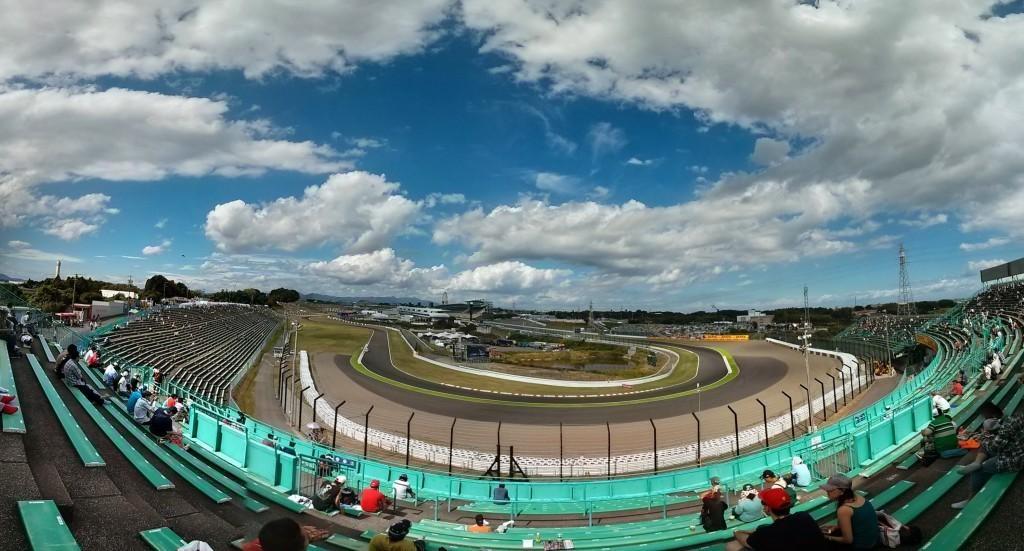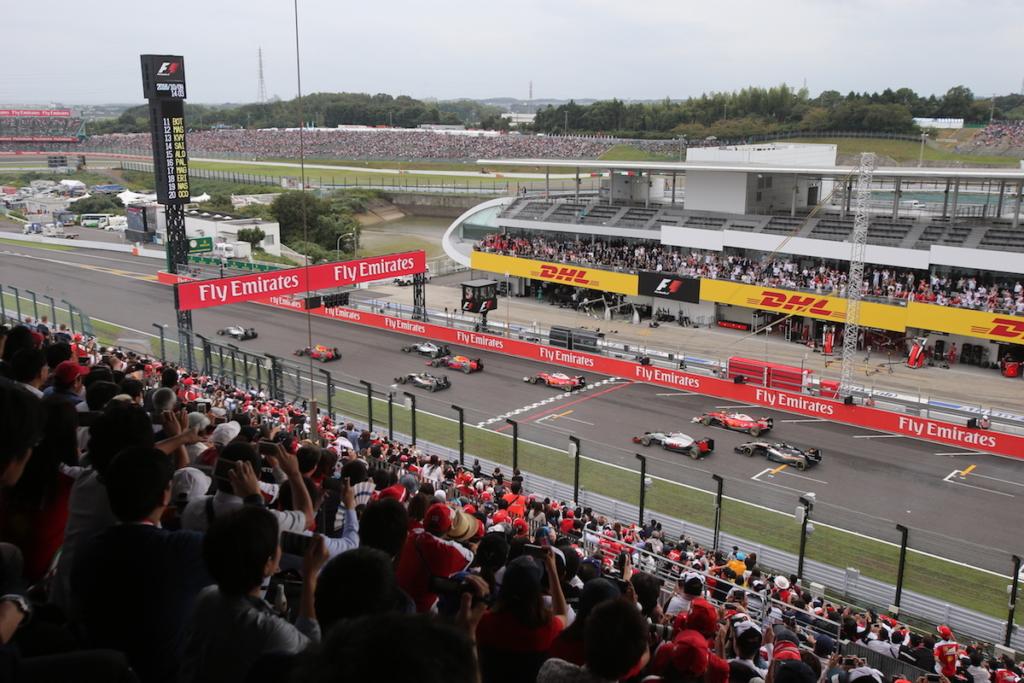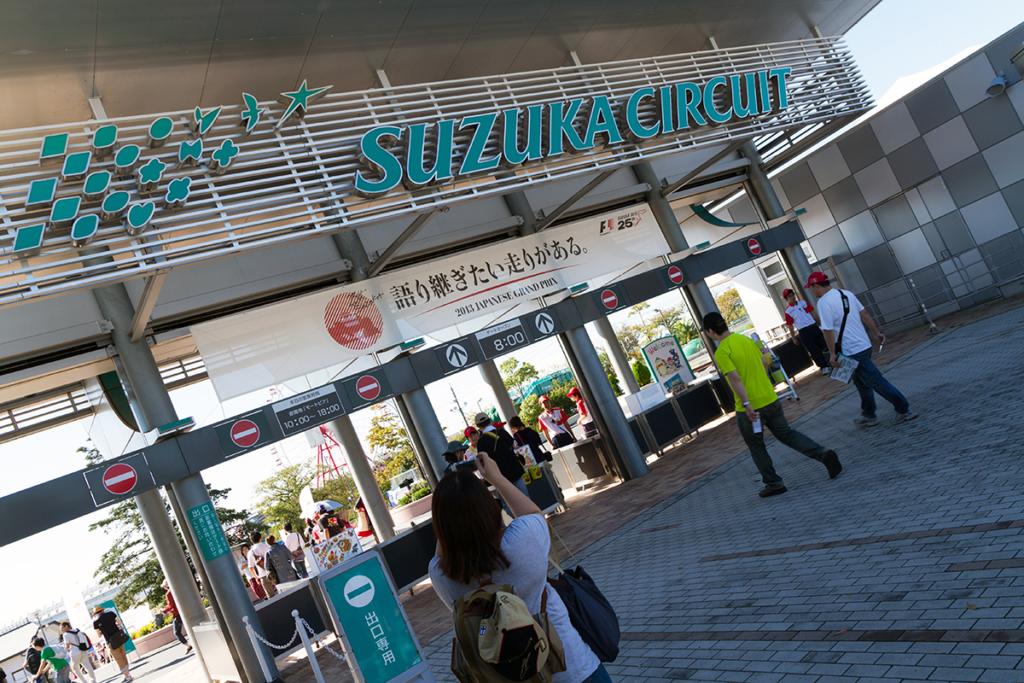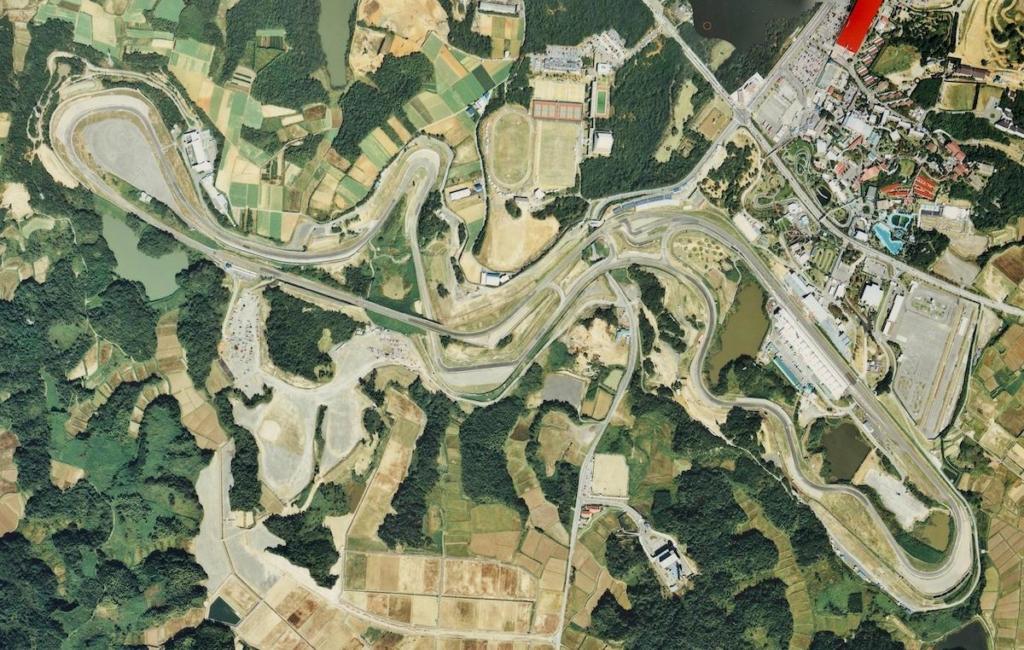
Which teams have never had a retirement at Suzuka? Who is the only driver to have scored points in every Japanese Grand Prix appearance? And which drivers have retired on every appearance at the track? Here’s Suzuka Circuit in Numbers!
1
Minardi scored a solitary point in their nineteen appearances at Suzuka Circuit when Christian Fittipaldi finishing sixth in the 1992 Japanese Grand Prix. Likewise, the Arrows team scored its only point from sixteen appearances at the track in 1989, courtesy of Derek Warwick.
Just a single point separates Lewis Hamilton and Sebastian Vettel in the all-time list of top points scorers at Suzuka. Hamilton overtook Vettel last season, taking his fourth victory at the track. Hamilton now has 151 points compared to Vettel’s 150. They’re the only two drivers to have scored over 100 points at the track.
3
Christiano da Matta, Max Verstappen and Stefan Johansson are the only three drivers to have finished every race they’ve started at Suzuka. Johansson has a 100% podium finish rate at the track from his single start in 1987, though he failed to qualify for the race in both of the next two seasons. Impressively, Verstappen is the only driver to have scored points in every entry at the Japanese track.
7
No driver recorded more DNFs here than Jean Alesi, with seven. He had eight non-finishes in total, having also recorded a DNS in 1990. It wasn’t all bad for the Frenchman though, he scored a podium finish at Suzuka in 1994. Alesi took to the track at Suzuka last year to commemorate the 30th edition of the Japanese Grand Prix.


13
Michael Schumacher has had the most points-scoring races at Suzuka, with thirteen. That tally will be equalled this weekend if Kimi Raikkonen finishes in the top ten. Jenson Button also had thirteen top ten finishes at Suzuka during his career, though points were only awarded for the top six and top eight positions when he made some of his top ten appearances.
19
With nineteen starts, Michael Schumacher has started more F1 races at Suzuka than any other driver. Had the Japanese Grand Prix not moved to Fuji for two years in 2007 and 2008, Rubens Barrichello would have the same total of starts at the track as his former Ferrari team-mate.
28
The number of drivers who have retired from every race they’ve started at Suzuka. Ivan Capelli has the most starts here without a finish. He started four races at the track between 1987 and 1990 and failed to reach the chequered flag in any of them. Betrand Gachot made five Japanese Grand Prix appearances without finishing any race, though he only qualified for the race in 1992 and 1995.
49
No team has recorded more finishes than McLaren at the Suzuka circuit. They’ve recorded 49 finishes in total at the track and haven’t recorded a DNF since Juan Pablo Montoya was out on the first lap in 2005.

60
Sixty different drivers have scored points at the thirty races held at Suzuka to date. From those sixty, five have scored just one point. The drivers to have scored just a single point at the track are Christian Fittipaldi, Derek Warwick, Mika Salo, Sebastien Buemi and Stefano Modena.
95.83%
At 95.83%, Red Bull have the best finish rate of any current team at Suzuka. From their 24 entries, David Coulthard’s retirement with gearbox problems in 2006 is the only time one of their cars has failed to reach the end of the race.
100%
Six teams have a 100% finish rate at Suzuka, but none of them are still in existence. Both Brawn cars reached the chequered flag on their only appearance at the track in 2009; Gabriele Tarquini finished in eleventh in Fondmetal’s only Japanese Grand Prix appearance in 1990; Honda finished with both cars at their home track on their only appearance as a works team here in 2006; Super Aguri finished with both cars on their only home race appearance at Suzuka in the same year; and recent back-markers Lotus and Manor finished with both drivers on their only appearances in 2010 and 2016 respectively.
28,442
If you added together all the Grand Prix laps which every driver has completed of Suzuka since F1 first visited in 1986, the total would come to 28,442. That covers a total distance of over 165,000km, which is enough to drive around the circumference of the Earth more than four times!